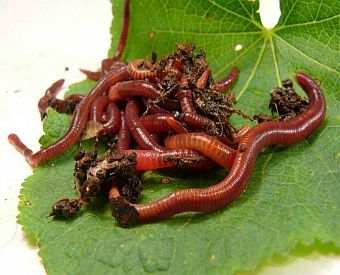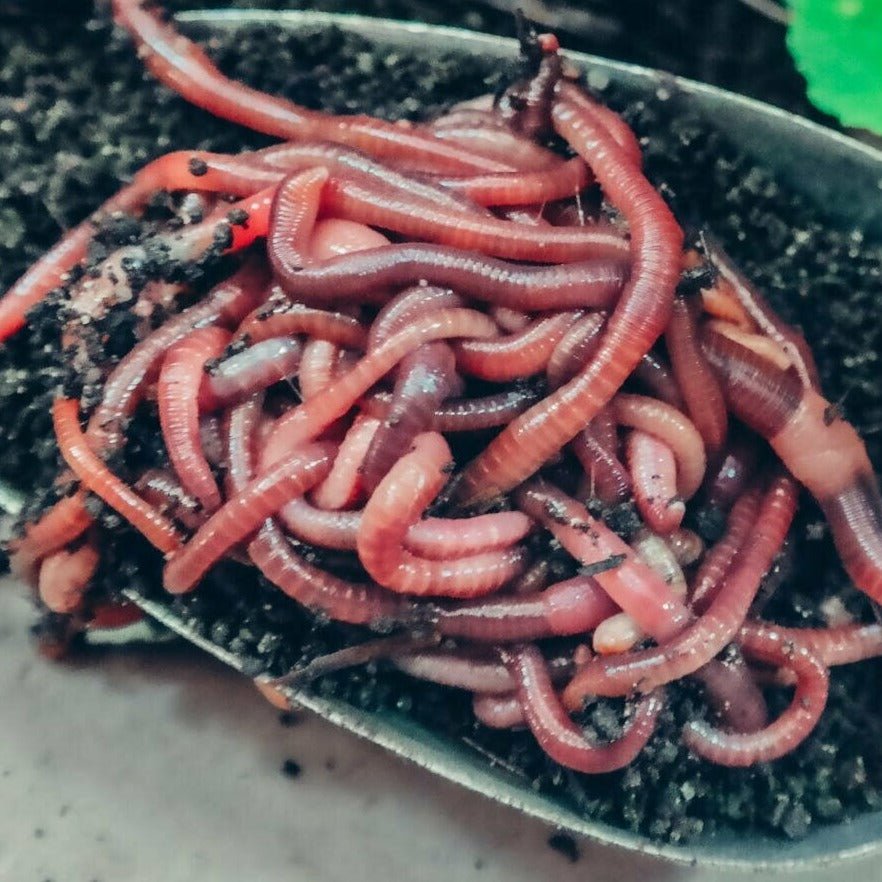Why Red Wigglers Are Crucial for Natural Farming
Red wigglers play a pivotal function in natural farming, largely via their distinct capacity to decay organic products and boost soil health. The level of their influence on agricultural methods and dirt biology elevates intriguing inquiries regarding the future of organic farming.
Role of Red Wigglers in Dirt Wellness

In addition, red wigglers enhance dirt framework by developing channels as they tunnel. These networks boost aeration and water seepage, advertising a much healthier root environment. Their activity likewise assists in maintaining ideal wetness levels, which is crucial for healthy and balanced plant growth.

Advantages of Worm Spreadings
Worm spreadings, the nutrient-rich waste matter produced by red wigglers, function as an effective modification for natural farming. These spreadings are abundant with important nutrients such as nitrogen, phosphorus, and potassium, which are crucial for plant development. Unlike artificial plant foods, worm spreadings release nutrients gradually, supplying a stable supply with time and reducing the threat of nutrient leaching and overflow.
Furthermore, worm spreadings improve dirt framework and aeration, promoting much healthier origin systems. Their high organic issue material enhances wetness retention, making it possible for plants to much better withstand drought problems. Furthermore, worm castings include advantageous microorganisms that sustain plant health by suppressing virus and boosting vitamins and mineral uptake.
The application of worm castings can bring about increased crop yields and improved quality of produce, making them a very useful source for organic farmers. Their usage likewise straightens with lasting farming practices, adding to soil fertility without the adverse ecological influences linked with chemical plant foods. On the whole, the unification of worm spreadings right into farming methods fosters a much more durable and productive ecosystem, highlighting the significance of red wigglers in chemical-free farming systems.

Enhancing Nutrient Cycling
(red wiggler compost bin)Nutrition biking is a crucial process in chemical-free farming, and the combination of red wigglers plays a pivotal function in boosting this cycle. These earthworms contribute substantially to the breakdown of natural matter, helping with the improvement of complicated organic materials into less complex, much more obtainable nutrients for plants. As red wigglers eat decaying organic issue, they excrete nutrient-rich spreadings, which are brimming with useful microbes. This microbial activity more help in the decay procedure, making sure that essential nutrients are easily available for plant uptake.
In addition, red wigglers assist to accelerate the mineralization of nutrients, transforming them from inert kinds right into bioavailable kinds that plants can absorb. This procedure is important for preserving dirt fertility and promoting healthy and balanced crop growth. The presence of red wigglers additionally motivates a varied dirt environment, cultivating an equilibrium of nutrients that sustains various plant varieties.
Improving Soil Structure
The enhancement of dirt structure is essential for fostering a healthy farming ecosystem, and the task of red wigglers significantly adds to this renovation. These earthworms play an essential role in aerating the soil and creating a network of channels that promote water infiltration and origin infiltration. As they tunnel with the soil, red wigglers damage up compacted layers, allowing for better oxygen exchange and promoting microbial task.
Moreover, the raw material produced from their waste, called vermicast, boosts dirt gathering. This process creates steady clumps of dirt bits, boosting dirt porosity and decreasing erosion (red wigglers). The existence of red wigglers additionally urges the development of useful fungal networks, which are vital for nutrient uptake by plants
Supporting Sustainable Practices
Integrating red wigglers into organic farming methods not just boosts soil wellness however also advertises sustainable farming approaches. These earthworms play an essential function in nutrient cycling, transforming organic waste right into valuable compost that improves the dirt. By using red wigglers, farmers can effectively reduce dependence on synthetic plant foods, consequently reducing chemical drainage and its damaging impacts on communities.
Furthermore, the incorporation of red wigglers motivates the practice of recycling natural materials, such as cooking area scraps and ranch waste. This waste reduction technique not just decreases disposal prices however likewise promotes a closed-loop system where nutrients are constantly gone back to the soil (red wigglers). Such techniques are essential in alleviating climate change, as they boost carbon sequestration and minimize greenhouse gas discharges
Additionally, red wigglers boost water retention in the dirt, which is important in times of drought. Their burrowing tasks produce channels that permit water to penetrate deeper right into the ground, hence advertising reliable water usage. Inevitably, incorporating red wigglers right into natural farming not just supports biodiversity yet additionally lines up with the principles of sustainable agriculture, using an alternative strategy to food manufacturing.
Verdict
In conclusion, red wigglers play an essential function in organic farming by substantially enhancing soil health and wellness and fertility. Hence, the combination of red wigglers into farming techniques is important try here for promoting sustainability and enhancing general soil quality.